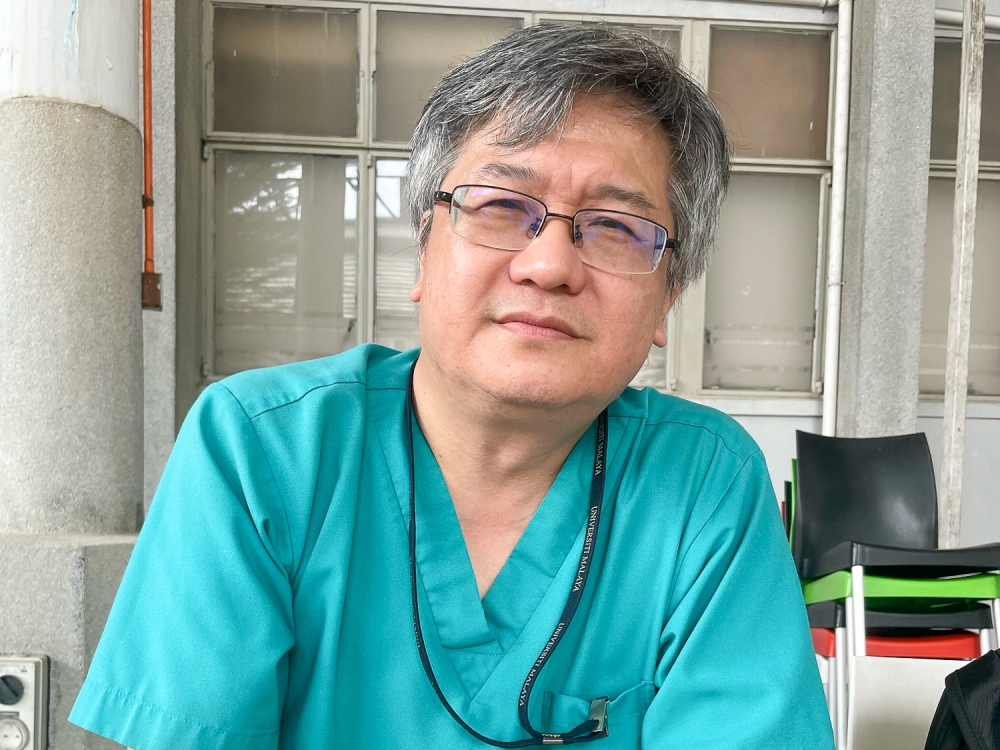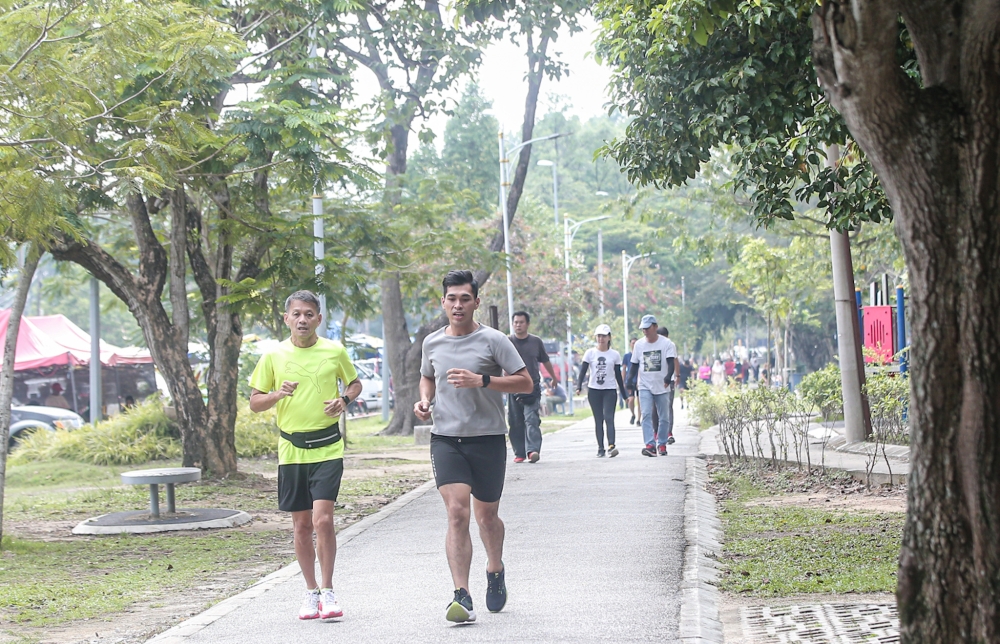KUALA LUMPUR, Aug 22 — It starts innocently enough; your 67-year-old father misplaces his keys or glasses. Often. Or your mother, who turns 88 in September, cannot remember what she was walking into the living room to get.
Are these just “normal” signs of ageing or something more?
Most family members have the tendency to brush these incidents aside as symptoms of old age. At worst, they’re casually dismissed as “senility”, something that comes as naturally as greying hair when one is advanced in years.
But what if they are not.
While our cognitive functions do become less efficient as we age, some could be signs of far more serious conditions like dementia, said Dr Chin Ai-Vyrn, a professor and a senior consultant geriatrician and head of the geriatrics unit at Universiti Malaya Medical Centre.
“Many people think dementia is part of ageing. It’s not,” he explained.
“Mild Cognitive Impairment (MCI) is also not a normal part of ageing. You may have trouble recalling some information, your ability to juggle things may be less efficient but that’s not MCI per se. MCI is when you have issues in terms of your thinking processes whether it’s memory, whether it’s perception or executive function or time, spatial.”
Dementia, MCI and old age
The challenge is knowing how to differentiate symptoms that are usually associated with ageing, and that requires some understanding about MCI and dementia symptoms, Dr Chin said.
Dementia is a condition in which your cognitive abilities, such as recollecting information, basic problem-solving, awareness of time and place, deteriorate to the point that it disrupts daily life.
Some of the most common symptoms are forgetting where you are or what year it is, or completely failing to recognise family members.
Dementia is a condition that can be caused by various diseases, with Alzheimer’s statistically shown to be the number one cause.
MCI, on the other hand, is milder but can develop into something worse if not treated early. The most common symptoms of people with MCI are usually persistently forgetting time, missing social events or getting lost. Some struggle to follow a conversation too and can have trouble navigating routes they are otherwise familiar with.
People with MCI can still manage to preserve their quality of life. Dr Chin said those living with MCI can still perform daily functions, although they may occasionally need help.
Dementia is a far more complicated condition that would usually require treatment and close observation by carers.

Learning the signs
There are a few things to watch out for but the most common signs are usually memory-related, explained Dr Chin.
“The most common signs I see are forgetfulness; perhaps repeating themselves or having some confusion with regards to time and place. Perhaps having difficulty doing something that is normally easy to do,” he said.
Dr Chin cited an example in which a person forgets where he or she parked their car. If it happens every now and then it may not necessarily be a sign of cognitive deterioration. It’s only when it occurs persistently that they would have to consider seeking help and get assessed.
Struggling to find words may also be one of the early signs to watch out for, according to the geriatrician.
People with MCI, who are at high risk of developing dementia, tend to stumble in their conversation because they have difficulty recollecting words that would usually come easy.
“You may want to say a word but it doesn’t come out. Or you see a face but you have difficulty remembering the person’s name, like someone who is famous like an actor. It just can’t come out. So these are things that may be early signs,” he said.
When and where to seek help
Carer-partners (usually a spouse) or family members of people with dementia told Malay Mail the discovery stage is usually the toughest to navigate because they start with almost zero knowledge, learning what to do or where to go only through trial and error or independent research from open sources.
Dr Chin said if family members notice the early signs they can visit general practitioners. Some GPs are capable of doing their own assessment, usually with tests like the mini mental state examination (MMSE) or the Montreal Cognitive Assessment (MoCA).
GPs will then issue a referral for the person to be checked by a geriatrician, such as Dr Chin. But the number of geriatricians in the country remains low, at just 60 both in private and public practice, Dr Chin said.
Still, he advised people not to be deterred and seek help even if the lack of experts in the field may cause waiting times to be longer.
“MCI or dementia worsens over years if they don’t take early steps to reverse the condition. So seeking help is important,” he said.

Steps to fight cognitive deterioration
The older we get, the higher the risk to develop MCI and possibly dementia. Dr Chin said these two conditions tend to worsen as we age.
But dementia and MCI are usually caused by factors that start much earlier, like persistently eating unhealthy food or living an inactive and sedentary lifestyle, not exercising or doing things that challenge the mind.
“Everybody is at risk,” Dr Chin explained.
“Whether or not you develop MCI and dementia depends on a few things... you shouldn’t think about it as something you develop only when you get older. What happens when you’re younger has an impact on your risk.”
The stripped down logic is that the more we live a healthy life, the more we work and keep our brains challenged, the more you improve resilience.
This could be as simple as walking or exercising daily, reading more or playing games instead of just sitting at home immediately after work watching television.
“It’s never too early or too late to start mitigating the risk factors... doing these things may develop more neural networks that increase adaptability to deal with the challenges. But you don’t want to wait until you’re 65 to start,” he said.
The National Dementia Action Plan
Awareness about diseases that affect functional cognitive abilities remains low not just in Malaysia, but globally, which makes it harder for family members to identify the signs early and take steps to mitigate the condition from worsening.
The proposed National Dementia Action Plan was meant to raise awareness as risks of cognitive diseases rise together with Malaysia’s ageing population. But there are concerns that people in the government may have forgotten about it.
The NDAP was conceived in 2017 with the aim of rolling it out by 2020. Dr Chin, who was one of the experts consulted for the plan, said the NDAP would have entailed detailed plans to beef up dementia care and a support system for family members or caregivers, which at the moment is only provided by private care centres which can be expensive.
The plan would have also outlined paths to widen access to early diagnosis and treatment, especially for lower income families, and make communities and cities or neighbourhoods more friendly for people living with MCI or cognitive deterioration.
“This is why we need a National Dementia Action Plan. We need good legislation to protect them, safeguard their rights. We need a focal point (at the policy level) to help a person deal with and manage dementia,” he said.
“We need to think of ways to co-operate, collaborate and co-ordinate between government and non-governmental organisations,” Dr Chin added.
“Most importantly we must develop ways to listen to the people with dementia themselves, their caregivers and family members in terms of what they actually need other than to assume that what we are providing is what they need.”



















